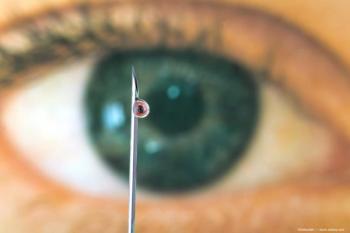
Emphasize the positive in interactions with glaucoma patients
Ophthalmologists should always strive to position their discussions with glaucoma patients in a positive zone, said Reay Brown, MD, at Glaucoma Day at the American Society of Cataract and Refractive Surgery (ASCRS) meeting.
Ophthalmologists should always strive to position their discussions with glaucoma patients in a positive zone, said Reay Brown, MD, at Glaucoma Day at the American Society of Cataract and Refractive Surgery (ASCRS) meeting.
"Speaking with glaucoma patients is something we may do on a daily basis, but it is something many ophthalmologists may not think about in a systematic way. Remember that glaucoma patients often fear blindness to a degree that is far beyond their actual risk, and that your words have a powerful influence and are critical to their care. Most glaucoma patients are being successfully treated, and I would encourage you to emphasize and remind them of that," said Dr. Brown, chairman, ASCRS Glaucoma Clinical Committee, and a private practitioner in Atlanta.
He explained that patient perceptions of glaucoma are in large part determined by what they are told by their physicians, and so it is important to project an appropriately positive attitude. That can be a challenge considering the downsides of treatments and the fact that glaucoma is a potentially blinding and incurable disease. However, most affected individuals do well and do not go blind, treatments usually work, and even if they are not perfect, damage occurs slowly.
While patients who are having problems should not dominate the physician's view of the glaucoma universe, it is important to recognize those individuals present a "no spin" situation. Even in that scenario, it is important to avoid passing on doubts and concerns to the patient.
"In those cases, talk about the issues concerning you and provide a full explanation. Your discussion will show the patient you have a plan and are in control, and that approach by itself will be very reassuring," Dr. Brown said.
Newsletter
Don’t miss out—get Ophthalmology Times updates on the latest clinical advancements and expert interviews, straight to your inbox.





























